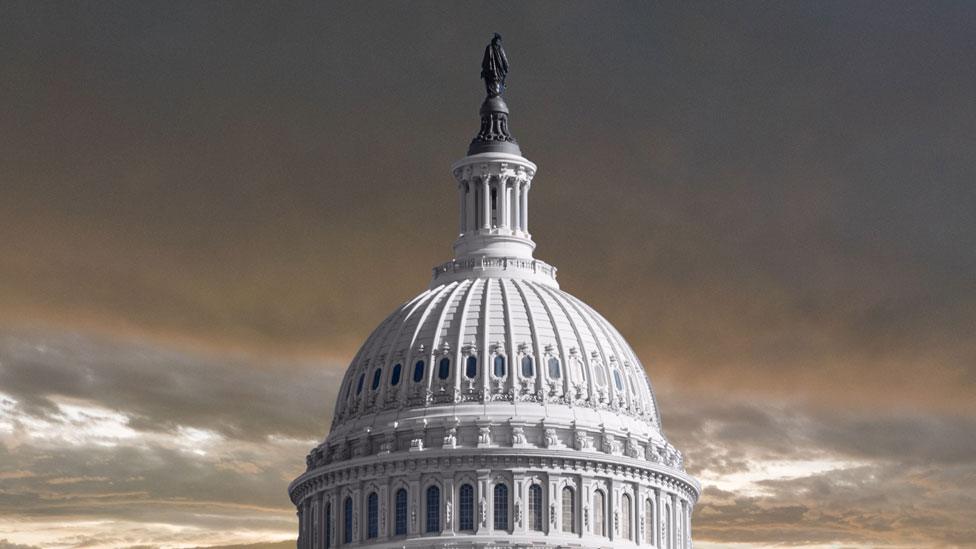Trump casts doubt on Russia investigator Mueller
- Published
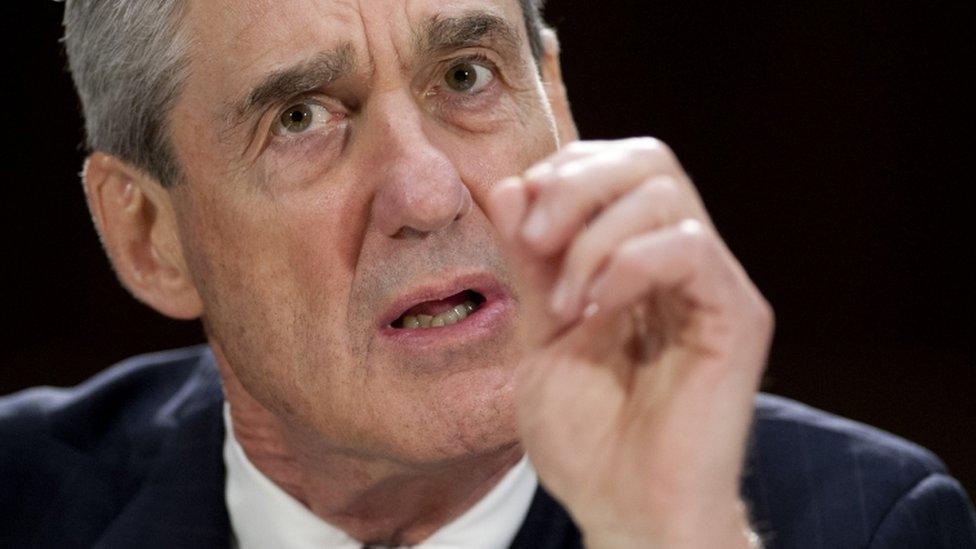
Mr Mueller has come under pressure from influential conservatives
President Donald Trump has questioned the neutrality of Robert Mueller, who is investigating Russian interference in last year's US election.
Mr Trump said Mr Mueller's friendship with James Comey, who had been heading the inquiry until sacked from his role as FBI chief, was "bothersome".
Asked on Fox News whether Mr Mueller should step down, Mr Trump said: "We're going to have to see."
However, Mr Trump did call Mr Mueller an "honourable man".
Mr Mueller was given the role of special counsel by the justice department to lead its investigation into alleged Russian interference after Mr Comey was sacked on 9 May.
Mr Mueller has not given any details of his investigation but US media have reported he is investigating Mr Trump for possible obstruction of justice, both in the firing of Mr Comey and whether Mr Trump tried to end an inquiry into sacked national security adviser Michael Flynn.
President Trump has repeatedly denied any collusion with Russia, calling it a "witch hunt".
Russia probe is 'ridiculous' - Trump
He did so again in his interview with Fox & Friends on Friday, saying "there has been no obstruction. There has been no collusion."
He called the accusations of obstruction of justice "ridiculous".
Asked whether Mr Mueller should recuse himself from the inquiry because of his friendship with Mr Comey, Mr Trump said: "Well he's very, very good friends with Comey which is very bothersome. But he's also... we're going to have to see."
He also said that "the people that've been hired were all Hillary Clinton supporters".
Trump's love-hate relationship with Comey over a tumultuous year
When Mr Mueller was appointed Mr Trump was said to be furious, but the special counsel won widespread initial praise from both Republicans and Democrats.
However, lately some influential conservatives have intensified their attacks, openly calling for Mr Mueller's dismissal.
Trump advocate Newt Gingrich urged the president to "rethink" Mr Mueller's position, saying: "Republicans are delusional if they think the special counsel is going to be fair."
The New York Times has reported that Mr Trump has considered firing Mr Mueller, external but has so far been talked out of it by aides.
Ten days ago, White House spokeswoman Sarah Huckabee Sanders said: "While the president has every right to" fire Mr Mueller "he has no intention to do so".
On Friday, her colleague Sean Spicer repeated there was "no intention" to dismiss Mr Mueller.
And in his Fox interview, Mr Trump said: "Robert Mueller is an honourable man and hopefully he'll come up with an honourable conclusion."
Do Trump voters care about the Russia investigation?
Earlier this month, Mr Comey testified to Congress that Mr Trump had pressured him to drop the investigation into Mr Flynn.
Mr Flynn was sacked in February for failing to reveal the extent of his contacts with Sergei Kislyak, the Russian ambassador to Washington.
Mr Comey testified he was "sure" Mr Mueller was looking at whether Mr Trump had obstructed justice.
US media said Mr Mueller was also examining whether Mr Comey's sacking was an attempt by the president to alter the course of the investigation.
On 16 June, Mr Trump sent out a tweet appearing to accept he was under investigation, although later his aides suggested that was not the intention.
On Thursday, Mr Trump also made it clear that he had not made secret recordings of his conversations with Mr Comey, despite an earlier hint to the contrary.
Trump injects reality TV suspense into "Comey tapes" saga
His tweet came a day before he was required by Congress to hand over any such tapes.
Mr Trump had kick-started speculation of the recordings in a tweet he posted days after firing Mr Comey, saying: "James Comey better hope there are no 'tapes' of our conversations."
Allegations of collusion between the Trump team and Russian officials during the election have dogged the president's first five months in office.
US investigators are looking into whether Russian cyber hackers targeted US electoral systems in order to help Mr Trump win - something Moscow has strongly denied.
Separately on Friday, a Washington Post article, external said the Obama administration had been made aware by sources within the Moscow government last August of President Vladimir Putin's direct involvement in the cyber campaign to disrupt the election.
The article said the administration debated a response for months before expelling 35 diplomats and closing two Russian compounds. Mr Obama had also approved planting cyber weapons in the Russian infrastructure, the article said, but the measure was not put into action.
- Published23 June 2017
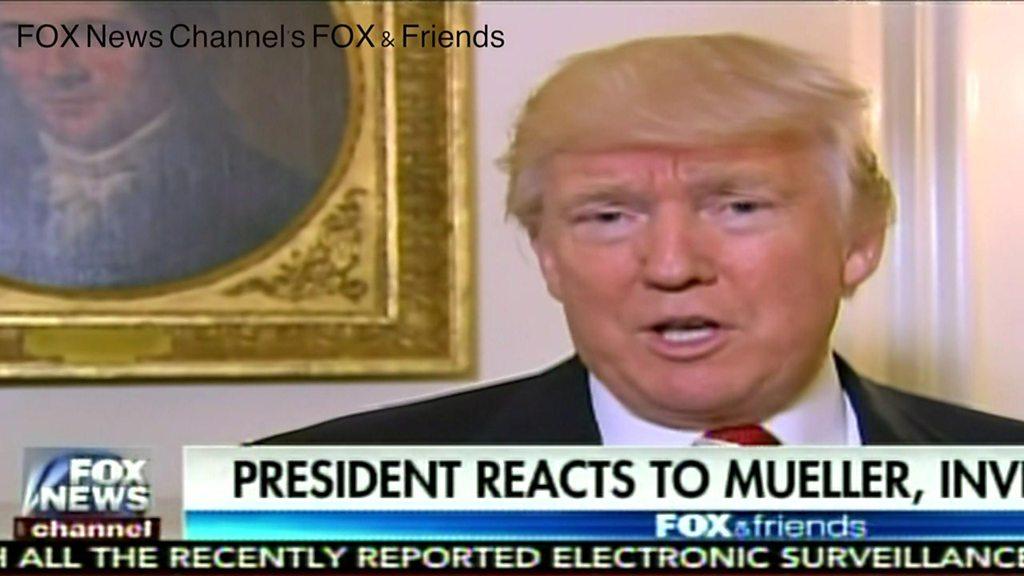
- Published14 September 2018
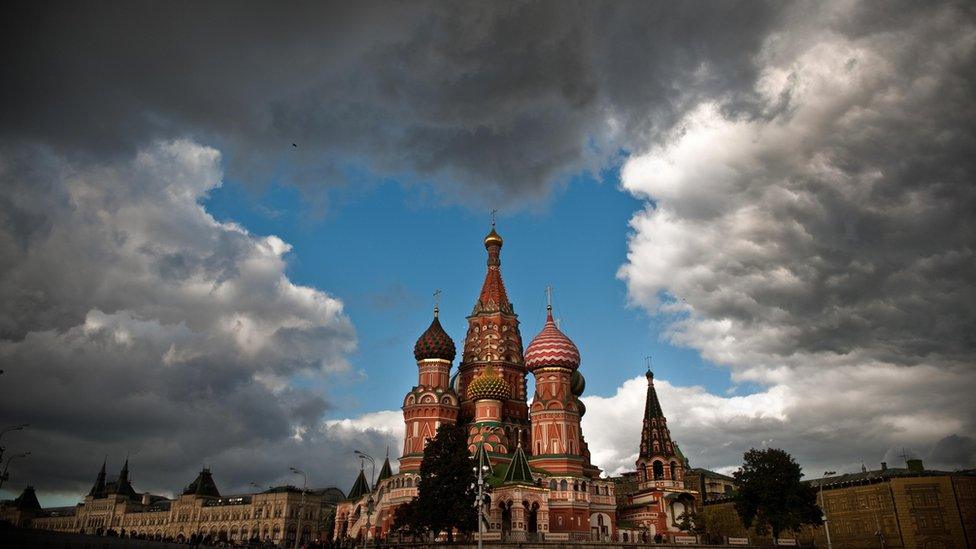
- Published12 July 2017
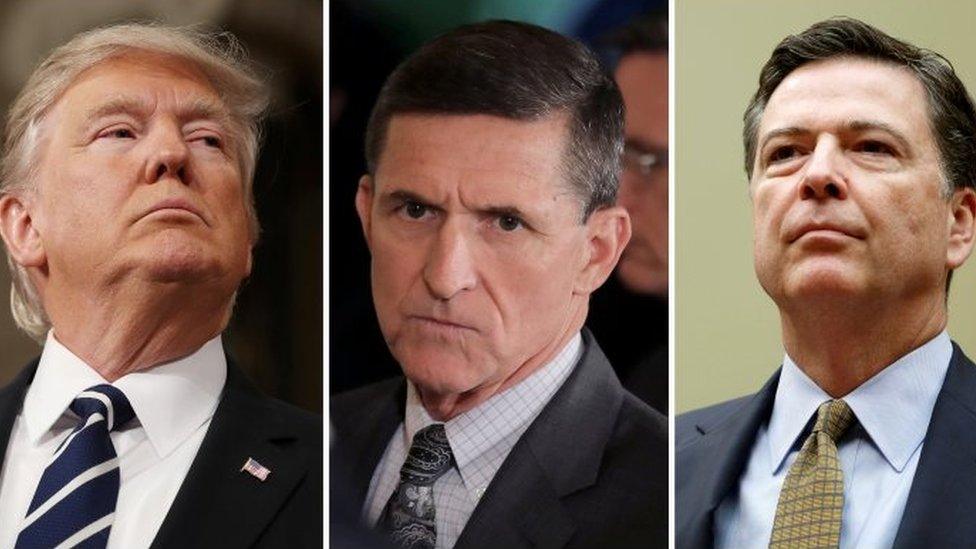
- Published8 June 2017
- Published13 May 2017
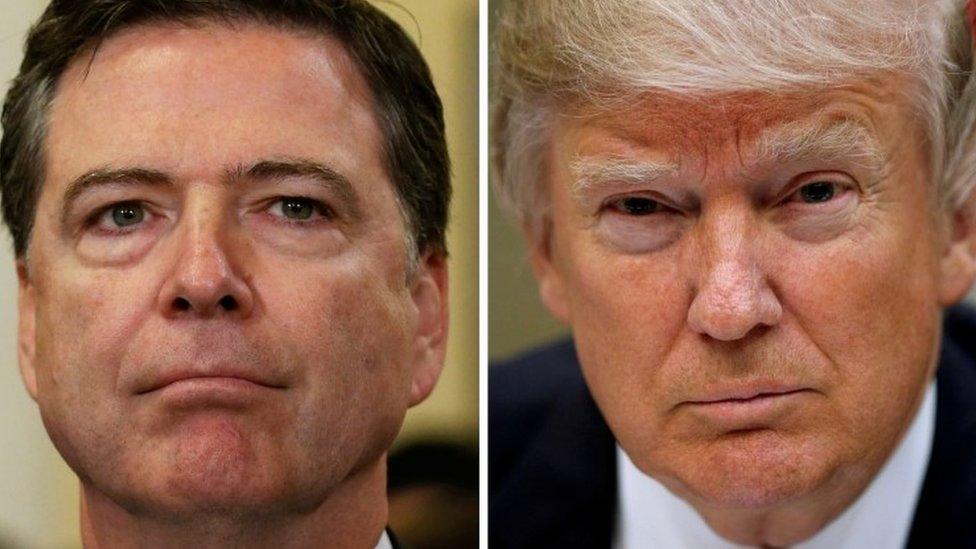
- Published17 May 2017
